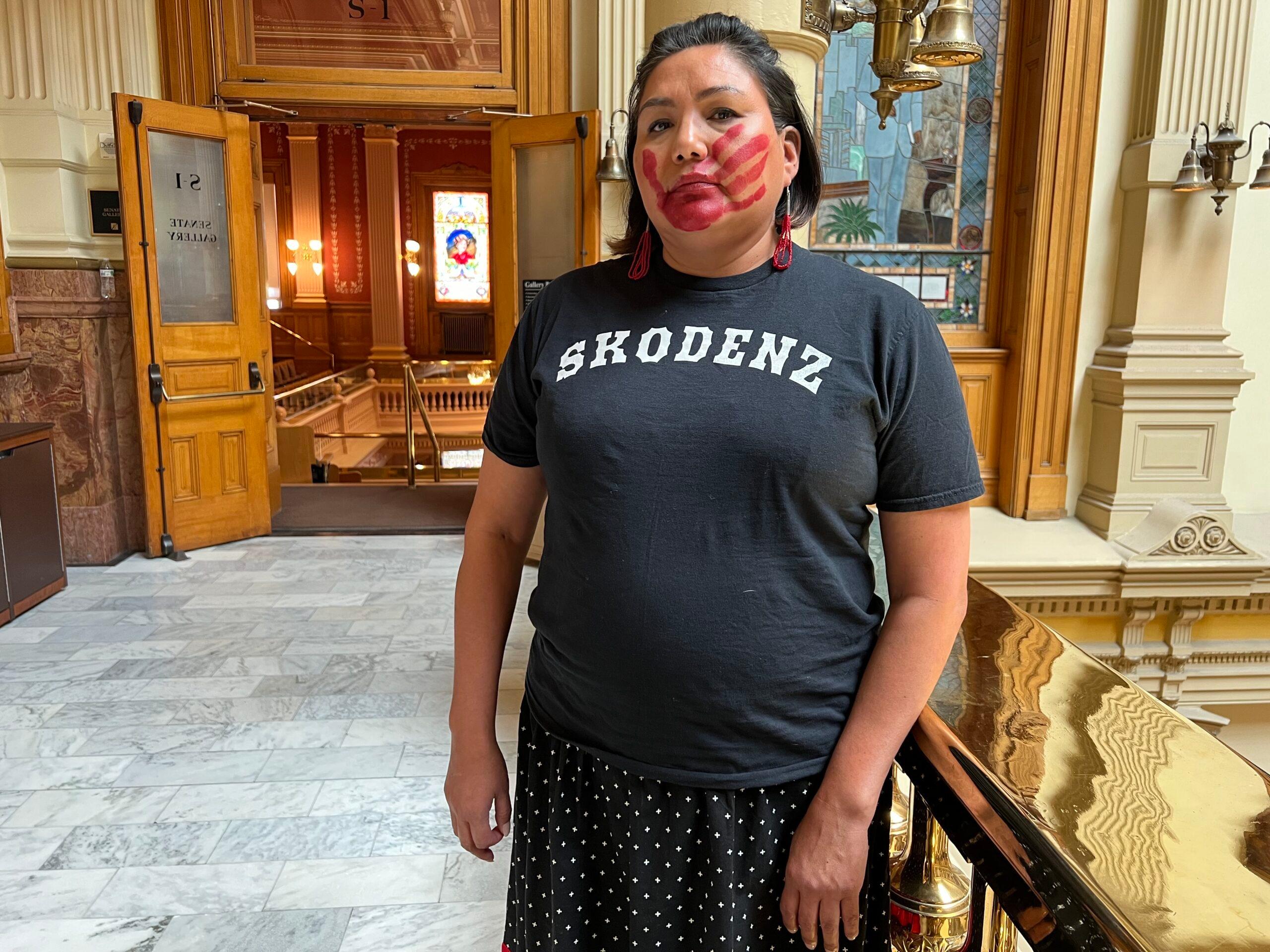
A new state office will coordinate Colorado’s response to violence against Indigenous people. Gov. Jared Polis on Wednesday signed into law a bill to create the new Office of Liason for Missing and Murdered Indigenous Relatives, or MMIR.
It’s one of the first offices of its type nationwide — part of a growing effort to respond to disproportionately high rates of violence against Indigenous people.
“We are very excited that this is a victory, that our community finally has a starting point with some real teeth in it to get started and do this work in earnest," said Raven Payment, an advocate for indgenous communities who is Ojibwe and Mohawk.
The new office will “serve as a liaison on behalf of the Indigenous community,” the bill states, and it will work with a new advisory board. The board will include members from community organizations, Indigenous tribes, law enforcement and others.
The law also requires the office and the Department of Public Safety to help with investigations, review cold cases and suspicious deaths, create partnerships with tribal communities, and develop policies for keeping and analyzing data about MMIR. The state also will create a data dashboard to track statistics about MMIR, help victims’ families, and more.
The office is expected to have a budget of about $500,000 and five employees.
Success after doubt
The fate of the bill had seemed uncertain in the final weeks — as the Polis administration objected to the creation of a whole new office.
The administration said that it supported dedicating similar amounts of manpower to the problem.
But instead of setting up an office with wide-ranging duties, the administration proposed dedicating a team of Colorado Bureau of Investigation agents to MMIR cases, while also creating a largely volunteer taskforce to examine bigger policy questions.
Advocates like Payment said they wouldn’t accept those changes. They argued only a new office would have the independence and scope to really tackle the problem. The administration’s proposal disregarded the knowledge and requests of Indigenous communities, they said. And one of the bill’s sponsors, Sen. Jessie Danielson, said that she wouldn’t accept the changes either.
That disagreement raised the possibility that the legislature could pass a bill that Polis would end up vetoing.
But, ultimately, a last-minute amendment in the state House helped to get the bill through and secured the governor’s signature. The amendment, introduced by cosponsor Rep. Leslie Herod, kept the concept of a new office, but removed its power to review criminal justice records for MMIR cases and to share that information with families, and in some cases with the public.
Herod and fellow House sponsor Rep. Monica Duran said the change was a way to get an important bill passed. Unlike much of the drafting of the bill, the amendment was written without close involvement from Indigenous advocates, they said.
“The amendments were a surprise as they didn't have time to filter to the community,” Payment said. But she and other advocates said they would accept the changes — and keep fighting.
“We're gonna continue to be here and do this work in order to serve our communities and to serve those families that have missing and murdered Indigenous relatives,” Payment said, “because we have to. It’s a responsibility that we have within our communities.”









